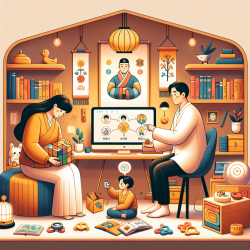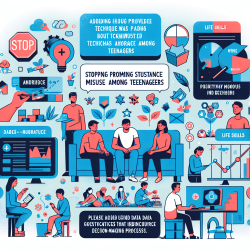As practitioners working with autistic children and their families, it's crucial to continuously refine our skills and approaches. A recent study titled A preliminary exploration of different coping strategies used by Korean immigrant parents of autistic children in high versus low family quality of life ratings provides valuable insights into the coping strategies employed by Korean immigrant parents of autistic children. This research highlights how different coping strategies can impact family quality of life (FQOL), offering us actionable steps to better support our clients.
Here are some key takeaways and practical tips based on the study's findings:
1. Problem-Focused Coping
- Information-Seeking: Parents in the high FQOL group actively sought information about autism and available resources. Encourage families to educate themselves about autism through reliable sources.
- Proactive Support-Seeking: These parents also proactively sought support from various networks. As practitioners, we can guide families in building strong support networks and connecting with community resources.
2. Emotion-Focused Coping
- Faith and Religious Beliefs: High FQOL families often relied on their faith and religious communities for emotional support. Recognize and respect the role of spiritual support in a family's coping strategy.
- Managing Negative Emotions: Low FQOL families experienced more negative emotions and stigma. Providing emotional support and counseling can help these families manage their feelings more effectively.
3. Adjustment-Focused Coping
- Positive Reappraisal: High FQOL families often used positive reappraisal to view their situation in a more positive light. Encourage families to focus on their child's strengths and progress.
- Setting Realistic Expectations: Helping families set realistic expectations can lead to better acceptance and improved family dynamics.
Understanding these coping strategies and their impact on family quality of life can help us provide more culturally sensitive and effective support to the families we serve. By integrating these insights into our practice, we can better support the well-being and resilience of both the children and their families.
To read the original research paper, please follow this link: A preliminary exploration of different coping strategies used by Korean immigrant parents of autistic children in high versus low family quality of life ratings.










